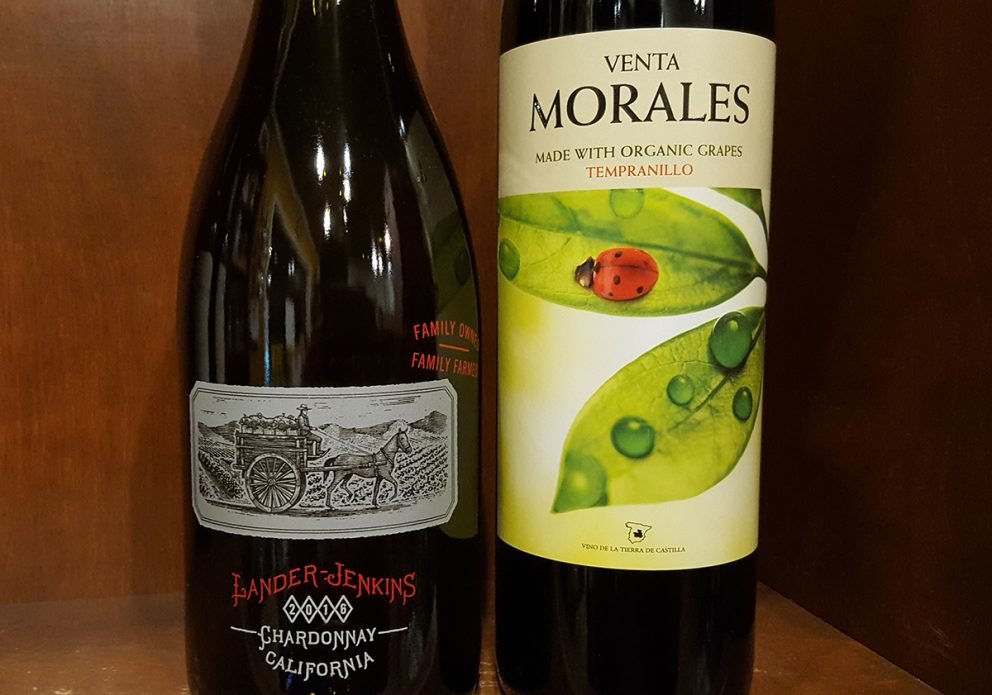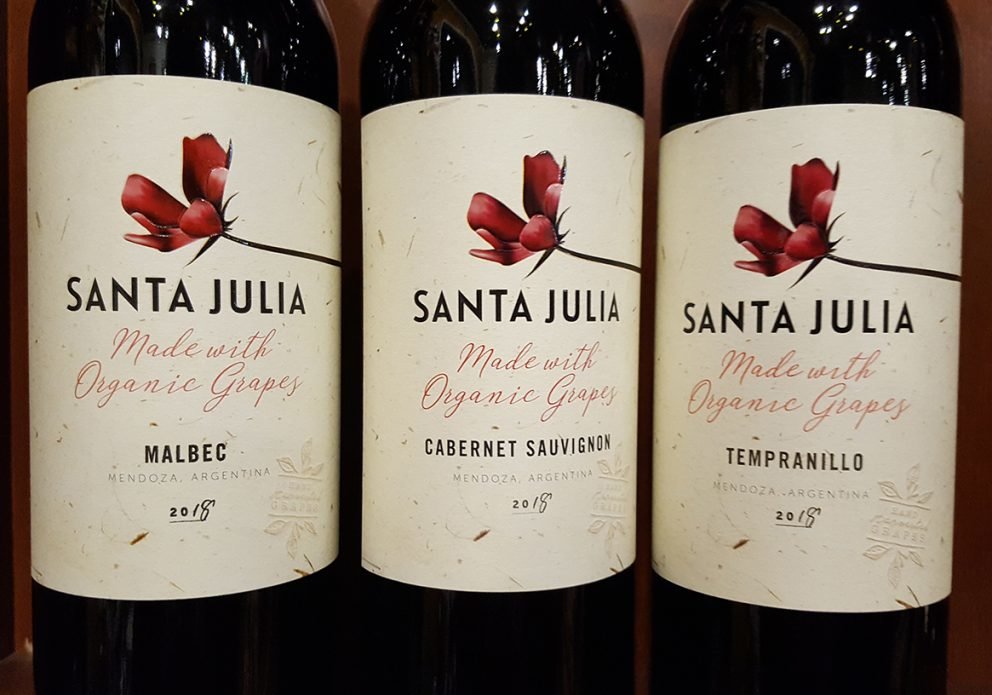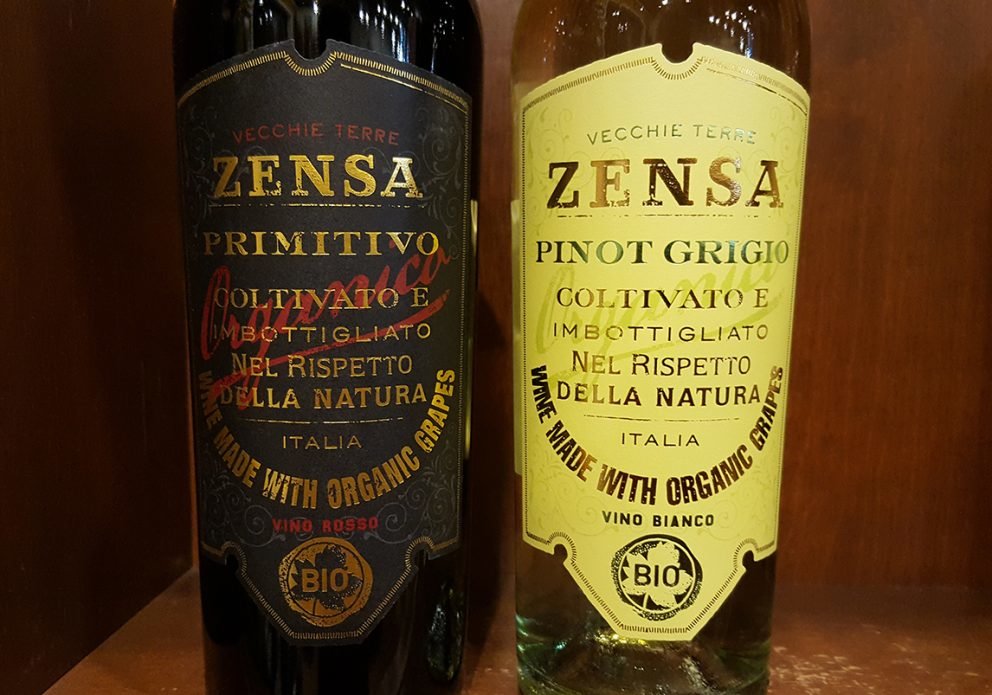As a small shop, we at Teller Wines pride ourselves on delivering great service. Naturally, we love to talk with our customers about all things related to – and sometimes unrelated to – wine. Recently, we have had numerous customers asking for “organic” wines or wines with no sulfites. They equate organic wines with no sulfites, which give them headaches. However, these are two completely separate issues. First, all wines – organic or otherwise – have sulfites because sulfites are a naturally occurring compound. Organic wines are made from organically grown grapes and has no added sulfites in the production phase. But it doesn’t mean organic wines can’t give you a headache, even though sulfites are not the cause. Sorry for all this science … do you have a headache yet?
There are three main reasons why people get headaches from drinking (mainly red) wines. The first culprit is tannins. Tannins are naturally occurring compounds that exist inside grape skins, seeds and stems. You experience the effect of tannins any time you drink a wine that creates a drying sensation in your mouth (think strong black tea), and for most of us, tannins create no headache at all. In fact, tannins are a great source of antioxidants. But, if you seem to get headaches from wine more often when you drink a big red wine like Cabernet Sauvignon or Malbec, you are tannin-sensitive. Full-bodied red wines are made differently than say, a lighter red like Pinot Noir. Depending on the grape varietal, there may be more tannins in the finished product, thereby causing the headache.
The second culprit is sugar. Alcohol and sugar are two substances that, when combined, can create a powerful headache. When your body consumes alcohol or sugar, you need lots of water in order to help process the substances. If you are not well hydrated, your body starts to pull the necessary water it needs from other parts or your body, including your head. As the liquid in your head starts to deplete, a headache forms. Sweet dessert wines and white wines such as Riesling or Moscato can cause more headaches. Also avoid cheaper wines, which tend to have more sugar because mass producers add sugar during fermentation in order to boost the alcohol. Personally, I get headaches from cheap white wines. And I only drink very dry (Trocken) Rieslings occasionally.
The third reason people have headaches from wines is really that they are having an allergic reaction to the wine. Histamines are chemicals that are released when we have an allergic reaction and can cause symptoms such as a runny nose, dry eyes and a headache. Recent research has found that food and drinks that have been aged, such as dry aged meats and red wines, can cause our body to release histamines and create these allergy-type symptoms. The simple solution is to take a histamine blocker before drinking red wines. And water, lots of water.
So, what are sulfites and why are they added to wine? The term refers to sulfur oxide, a preservative with antioxidant and antibacterial properties that is often added to prevent oxidization. The bottom line is that sulfites help to age and preserve the wine. It’s a stabilizer. Without it, you have an organic wine with a short shelf life. You may see “contains sulfites” on many wine labels because they are required to say this in the United States and many other countries per their rules and regulations.
To answer the customer’s first question, what makes a wine “organic?” The U.S. government regulates use of the term “organic.” Wines can be made from certified organically-grown grapes, avoiding any synthetic pesticides or additives, and they are also made without any added sulfites.
But have you ever wondered what takes the place of these chemicals to keep the pests off the grapes used to make your wine? The answer is animals and insects. By introducing beneficial insects to the crop, growers can control the number of harmful bugs. Chickens and sheep may also be left to roam a vineyard to help fight not only the bad insects but also the weeds. Organic vineyards also have natural alternatives for creating healthy soils. To replace synthetic fertilizers, they rely on compost and cover crops, which add nutrients to the soil over time. The cover crops are planted in between the rows of vines. They attract insects that are good for the soil and plants and provide additional support against erosion. Combined, compost and cover crops provide a nutrient-rich soil that’s perfect for growing grapes. That’s why some wines taste like green pepper or eucalyptus.
Taking it a step further, if you ever look carefully at a wine label, you might also spot two other terms: “sustainably” grown or “biodynamic.” In the simplest terms, organic wines, sustainable wines and biodynamic wines are different because of the way the vineyards grow and harvest the grapes. Organic winemakers are focused on a purer process – less exposure to chemicals. Sustainable winemakers place a priority on being environmentally friendly, socially responsible and economically sound. Biodynamic winemakers make organic wines using farming processes that align with the lunar calendar and involve specific soil treatments.
The certifications for each type of wine are very different as well. While there is a single (USDA) certification for organic wines, sustainable and biodynamic wines have several regional or industry recognitions. You’ll see various trademarked symbols and logos on the wine labels too. And if a winery is going to adhere to these practices, they’re likely to want you to know about it. I would venture to guess about 35-45% of the wines we carry at Teller Wines have some sort of organic, sustainable, or biodynamic designation. California, parts of Italy, Spain and South America widely use one of these farming methods.
We are all trying to eat and drink healthier these days. According to the Pew Research Center, 71% of Americans are making purchasing decisions based on nutrition and ingredients labels. Furthermore, 68% of Americans have purchased organic food products within the past year and they are choosing organic for a variety of benefits. Who doesn’t want to pair their organic food with an equally clean and responsibly produced glass of wine?
We always say the best consumer is a curious consumer. So, keep the questions coming, and cheers to your health and fewer headaches!
(Man with headache image courtesy Wasilla Headache Center, Wasilla, Anchorage, Alaska)




































Lisa, you got the trifecta! Good job!
Taking an antihistamine like Claritin either during or right after drinking red wine has been a game changer for me! No more red wine headaches! Drinking on an empty stomach also gives me headaches, and not drinking plenty of water all day prior to imbibing ensures I’ll likely suffer the next day too!